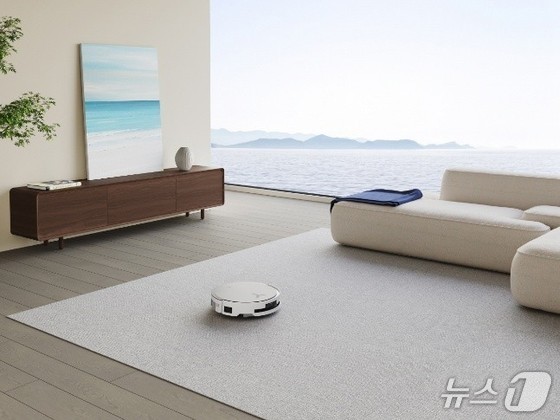
Chinese robot vacuum manufacturers like Roborock and Ecovacs are leveraging the global smart home standard Matter to penetrate the South Korean home appliance ecosystem. Previously limited to remote control via their own dedicated apps, these Chinese robot vacuums are now expanding their compatibility to Apple, Samsung, and LG platforms.
Roborock and Ecovacs Embrace Matter, Expanding to Other IoT Platforms
According to industry sources, Roborock and Ecovacs began supporting the Matter smart home integration protocol on select flagship models on Tuesday. Matter is a unified standard developed by the Connectivity Standards Alliance (CSA) to enhance interoperability among smart home devices, regardless of brand or operating system.
The CSA includes tech giants like Samsung, LG, Google, Apple, and Amazon. Roborock users can now register their devices on Apple’s HomeKit platform, enabling control through Siri, Apple’s AI voice assistant.
According to industry sources, Apple reportedly added robot vacuum control features to HomeKit in its recent iOS 18.4 update. Users can now control Matter-supported Roborock or Ecovacs models from their iPhone, iPad, or Apple Watch, anywhere and anytime.
Roborock is rolling out firmware updates for flagship models like the S9 MaxV Ultra and S9 MaxV Sli and plans to expand Matter support to other models, such as the S8 MaxV Ultra and Qrevo Curv.
Ecovacs prioritizes Matter support for its high-end models, starting with the DEEBOT X8, X2, and X2 Combo. The company plans to extend this support to other models through over-the-air updates.

Chinese Appliances Overcome Connectivity Hurdles
Matter-equipped Chinese robot vacuums are expected to integrate with smart home IoT platforms from many South Korean companies, such as Samsung and LG. Both SmartThings and LG ThinQ now list “Matter-supported models” that are compatible with their devices.
SmartThings can connect to Chinese robot vacuums without additional hardware. LG ThinQ does not yet support China’s robot vacuums. But it plans to launch its AI home hub, “ThinQ On,” in the first half of this year, enabling voice control of Roborock and Ecovacs products.
The key question is whether integrating Chinese robot vacuums into the South Korean appliance ecosystem will benefit the market in the long term. With Roborock already commanding over 40% of the market share in South Korea, resolving connectivity issues could further boost consumer demand.
Industry experts suggest that while lowering barriers for Chinese companies might impact market competition in the short term, expanding IoT platform compatibility could prove advantageous in the long run.
Industry insiders noted that while consumers may have more incentive to purchase Chinese robot vacuums if they work with SmartThings or LG ThinQ, this expansion represents a broader move towards integrating AI home platforms with third-party services and apps from various manufacturers.

Privacy Concerns Persist Despite Assurances
South Korean companies differentiate themselves by addressing concerns about data privacy with Chinese appliances. While Chinese manufacturers promote enhanced security measures, structural limitations remain, as they must comply with government data requests.
An industry insider commented, “Chinese companies emphasize improved security, but this mainly addresses external hacking threats. They’re still legally obligated to provide collected personal data if the Chinese government demands it, which makes consumers uneasy.”
However, investigations by the Personal Information Protection Commission of South Korea have found no evidence of consumer data leaks through Chinese appliances. Roborock stated in February that video and audio data collected by their robot vacuums is not stored on servers or shared with third parties.
When integrating Chinese appliances into their platforms, Samsung and LG plan to implement robust security measures, including multiple layers of protection.
Yang Hye Soon, Head of Samsung Electronics’ MDE Strategy Team, explained that products must pass through Samsung’s Knox security system to integrate with SmartThings. LG Electronics emphasized that its ThinQ app complies with privacy regulations and incorporates strong security features through LG Shield.
